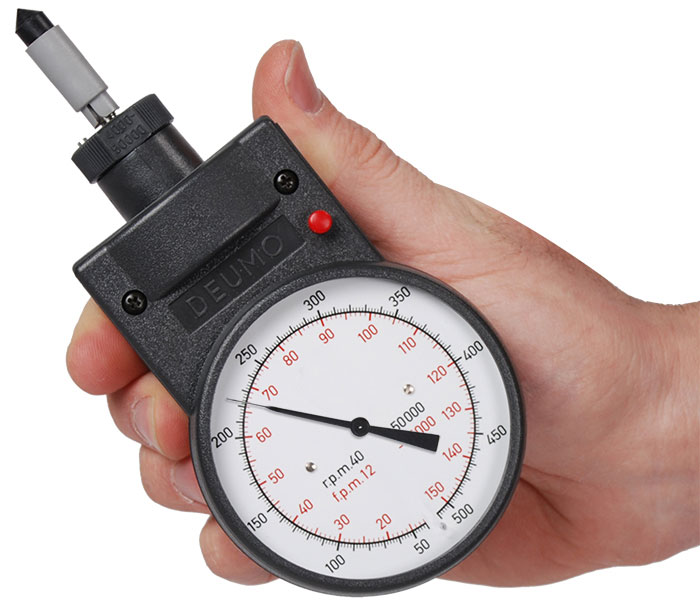The Benefits of Installing a Tachometer in Your Car
The Benefits of Installing a Tachometer in Your Car
Blog Article
Trick Reasons Having a Tachometer Is Essential for Maintaining Engine Wellness and Efficiency
This modest yet important tool plays a critical duty in the maintenance of an engine's health and performance. By offering real-time information on engine speed and RPM levels, a tachometer supplies indispensable understandings that straight impact the performance and durability of the engine. Allow's check out the crucial factors behind its pivotal role in keeping engine wellness and performance.
Avoiding Engine Over-Revving

To secure the engine from possible damages, it is crucial to carry out actions that avoid over-revving, a practice that can bring about pricey repairs and lowered engine life expectancy. Over-revving takes place when the engine's rotational rate surpasses the optimum limitation set by the supplier, creating unnecessary stress and anxiety on internal elements such as pistons, valves, and attaching rods. This excessive stress can cause mechanical failures, consisting of curved valves, harmed pistons, and even disastrous engine failing.
One reliable step to protect against over-revving is the setup of a rev limiter. A rev limiter is a device that manages the maximum RPM (revolutions per minute) of the engine by either removing fuel circulation or spark to the engine when the pre-set limitation is reached. In addition, informing motorists and operators on the value of keeping track of engine RPM through the tachometer can assist avoid unexpected over-revving. Routine maintenance checks to make certain the engine is in optimal problem can also aid in avoiding over-revving cases and extending the engine's life expectancy. By embracing these preventive steps, the danger of engine damage due to over-revving can be considerably decreased.
Maximizing Fuel Usage
Effective gas usage plays a crucial function in maximizing the performance and sustainability of an engine. tachometer. Maximizing fuel consumption not just helps in minimizing functional prices yet likewise minimizes the ecological impact of automobile emissions. By making use of a tachometer to keep track of engine speed and change driving practices as necessary, drivers can accomplish far better gas performance
Keeping a stable rate and preventing abrupt accelerations and decelerations can substantially boost gas economic climate. In addition, correct equipment choice based on the tachometer analyses makes sure that the engine operates within its optimal array, bring about a lot more effective fuel burning.
Consistently checking the tachometer can likewise help recognize any type of ineffectiveness or mechanical issues that might be impacting fuel intake. A sudden boost in gas usage without a corresponding change in driving habits might show an issue that calls for interest.
Tracking Engine Health And Wellness
Keeping an eye on engine wellness is vital for guaranteeing ideal efficiency and long life of the vehicle. By utilizing a tachometer to keep track of engine rate, vehicle drivers can detect abnormalities that may suggest prospective concerns with the engine. A tachometer gives real-time information on engine changes per min (RPM), allowing drivers to identify any unusual spikes or decrease in RPM that could signal problems such as misfires, worn-out components, or engine overheating.

Regularly monitoring engine health via the usage of a tachometer makes it possible for motorists to attend to problems quickly before they rise and trigger considerable damage. Finding a reduction in RPM could show fuel distribution from this source issues or a clogged air filter, while an abrupt boost in RPM might direct to issues with the transmission or exhaust system. By remaining alert and responsive to modifications in engine performance, vehicle drivers can stop costly fixings and guarantee the total health and wellness and efficiency of their automobile.
Extending Engine Life-span
Guaranteeing the long life of an engine look at this site requires thorough maintenance methods and conscientious tracking of vital performance signs. Expanding an engine's life expectancy is critical for decreasing total vehicle upkeep prices and avoiding unforeseen failures. A tachometer plays a significant function in this facet by providing real-time data on engine rate, permitting drivers and auto mechanics to make enlightened choices to avoid extreme deterioration.

Moreover, regular maintenance based upon tachometer analyses, such as prompt oil modifications and stimulate plug substitutes, can substantially add to prolonging the engine's durability. On the whole, integrating a tachometer into Read Full Report regular engine tracking methods is vital for protecting the engine's health and efficiency over the long term.
Conserving Cash on Fixes
To successfully manage vehicle maintenance costs and minimize unanticipated failures, leveraging the understandings offered by a tachometer can be instrumental in conserving cash on repair work. A tachometer helps in checking the engine's RPM (changes per minute), enabling drivers to run within the suggested array. By remaining within these optimal RPM degrees, extreme strain on the engine can be stayed clear of, decreasing the likelihood of pricey repair services due to straining the engine (tachometer). Furthermore, a tachometer can alert vehicle drivers to prospective concerns such as engine misfires or stopping working elements, enabling early treatment prior to these problems rise and result in extra substantial-- and expensive-- repair services.
Furthermore, by utilizing the data from a tachometer to exercise smooth velocity and deceleration, motorists can lengthen the lifespan of their car's elements, inevitably conserving cash on maintenance and replacements. Generally, the understandings given by a tachometer empower chauffeurs to make educated choices that can protect against unnecessary wear and tear on the engine, causing substantial cost savings in the future.
Final Thought
In final thought, a tachometer plays a crucial role in maintaining engine health and wellness and effectiveness by stopping over-revving, maximizing gas intake, checking engine health, extending engine lifespan, and conserving cash on repairs. It is an essential tool for ensuring that the engine operates within secure restrictions and executes at its ideal, inevitably adding to the durability and general performance of the car.
Report this page